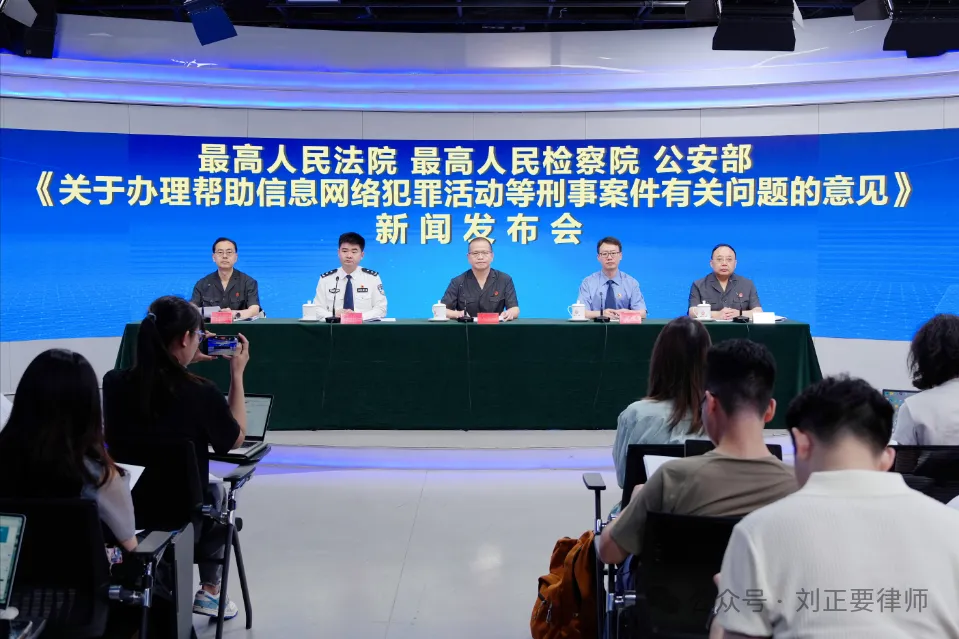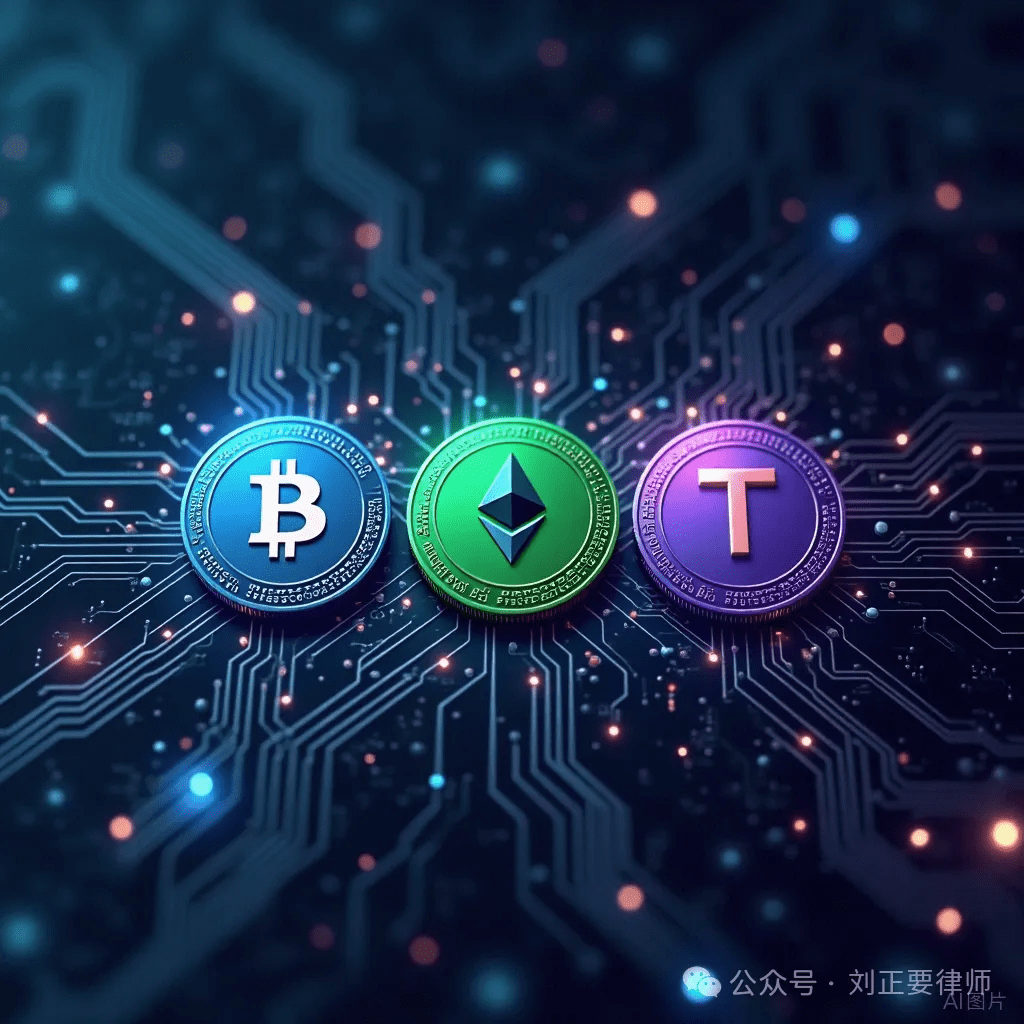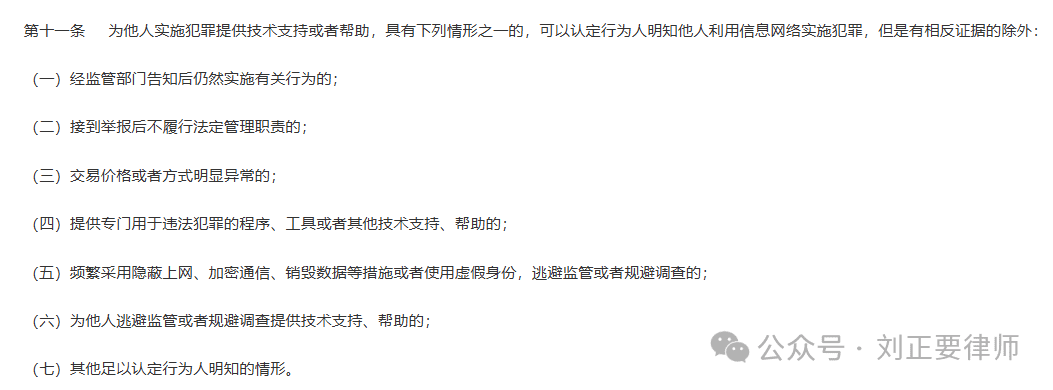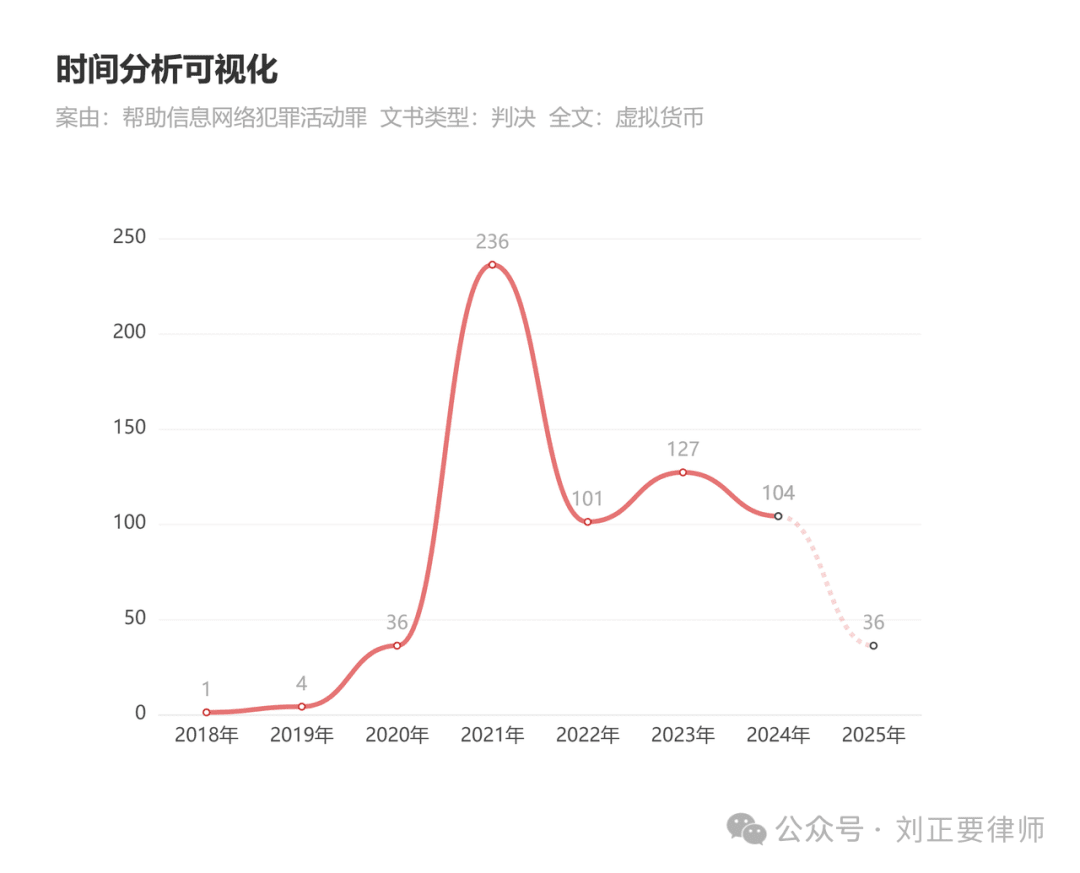Author: Lawyer Liu Zhengyao
Original link: https://mp.weixin.qq.com/s/Dkk34rZ-P4GgAAHSVdaTxw
Statement: This article is a reprint. Readers can obtain more information through the original link. If the author has any objections to the form of reprinting, please contact us, and we will make modifications according to the author's request. Reprinting is for information sharing only and does not constitute any investment advice, nor does it represent Wu's views and positions.
Introduction
On July 28, 2025, the Supreme People's Court, the Supreme People's Procuratorate, and the Ministry of Public Security (hereinafter referred to as the "Two Highs and One Ministry") jointly held a press conference to issue the "Opinions on Handling Criminal Cases Related to Assisting Information Network Criminal Activities" (hereinafter referred to as the "Opinions"), which provides more detailed regulations on the composition of the crime of assisting information network criminal activities, as well as mitigating and aggravating circumstances. (Image source: internet, infringement will be deleted)
(Image source: internet, infringement will be deleted)
Among them, a provision will significantly impact the crypto community, especially those engaged in virtual currency transactions (such as U Merchant, etc.).
01 What does the Opinions say?
(1) Background of the Opinions
Cybercrime, represented by telecommunications network fraud, has begun to develop deeply, with black and gray industries such as "scoring platforms" related to telecom fraud, online gambling, pyramid schemes, etc., continuously growing.
In fact, prior to this, judicial authorities, including the "Two Highs and One Ministry", had separately or jointly issued:
1. "Opinions on Several Issues Concerning the Application of Law in Handling Criminal Cases of Telecommunications Network Fraud" (Two Highs and One Ministry, Fa Fa [2016] No. 32);
2. "Opinions on Several Issues Concerning the Application of Law in Handling Criminal Cases of Telecommunications Network Fraud (II)" (Two Highs and One Ministry, Fa Fa [2021] No. 22);
3. "Opinions of the Supreme People's Court, Supreme People's Procuratorate, and Ministry of Public Security on Several Issues Concerning the Application of Criminal Procedure in Handling Information Network Criminal Cases" (Two Highs and One Ministry, Fa Fa [2022] No. 23);
4. "Opinions on Several Issues Concerning the Application of Law in Handling Criminal Cases of Cross-border Telecommunications Network Fraud" (Two Highs and One Ministry, June 26, 2024);
5. "Interpretation of the Supreme People's Court on Several Issues Concerning the Application of Law in Hearing Criminal Cases of Concealing and Hiding Criminal Gains and Profits" (Supreme Court, Fa Shi [2021] No. 8);
6. "Interpretation on Several Issues Concerning the Application of Law in Handling Criminal Cases of Illegal Use of Information Networks and Assisting Information Network Criminal Activities" (Supreme Court, Supreme Procuratorate, Fa Shi [2019] No. 15);
These regulations specify the composition of crimes involving telecommunications fraud (fraud), assisting crimes (assisting information network criminal activities), and concealing crimes (concealing, hiding criminal gains, and profits), especially the presumption of "subjective knowledge" for actors in assisting and concealing crimes.
However, the complexity of social activities cannot be fully covered by one or several judicial interpretations or criminal policy documents. For example, the emergence of virtual currencies has made traditional money laundering methods (such as underground banks) increasingly obsolete. Due to the inherent lag of judicial activities, it is difficult for laws and regulations to timely regulate illegal activities related to virtual currencies.
Even with provisions like judicial interpretations, although relatively flexible, they cannot recklessly impose criminal penalties for certain behaviors in the face of the requirements of criminal justice restraint and the principle of legality. Taking the aforementioned "Interpretation on Several Issues Concerning the Application of Law in Handling Criminal Cases of Illegal Use of Information Networks and Assisting Information Network Criminal Activities" (hereinafter referred to as the "Interpretation") as an example, it stipulates in Article 12 that under the premise of "knowing that others use the information network to commit crimes and providing assistance for their crimes," one of the following behaviors constitutes assisting crime: "1. Providing assistance to three or more parties; 2. Paying settlement amounts over 200,000 yuan; 3. Providing funds over 50,000 yuan through advertising; ... 7. Other seriously aggravated situations."
What are the other seriously aggravated situations? Is there a relatively unified standard of judgment in practice? Additionally, there is a catch-all provision in item 7 of Article 11 of the aforementioned "Interpretation" stating "other situations sufficient to determine the actor's knowledge," what is the standard for this "other sufficient" determination? Practices vary.
Thus, the Opinions were finally issued to provide more precise guidance on the application of assisting crimes in recent years.
(2) Specific Content of the Opinions
The Opinions consist of five parts and 16 articles. We will only discuss the core sections:
First, it explicitly defines the catch-all provision in item 7 of Article 11 of the Interpretation, which states "other situations sufficient to determine the actor's knowledge":
"1. Illegally providing bulk phone cards and insertion devices, illegally providing devices and software that can change caller numbers, facilitate virtual dialing, or illegally access public telecommunications networks; Illegally providing bulk accounts, automatic switching systems for network addresses, and platforms that provide SMS verification and voice verification;
Continuing to engage in relevant behaviors after being restricted or suspended by financial institutions, telecommunications operators, and internet service providers due to abnormal situations such as fraud;
Preparing responses to investigations in advance."
Second, it makes explicit provisions regarding the catch-all clause for other seriously aggravated situations in item 7 of paragraph 1 of Article 12 of the Interpretation, which Lawyer Liu (web3_lawyer) will not elaborate on.
Third, it clarifies the criminal policy of "combining leniency and severity." For example, those who organize or use minors, students, and the elderly to commit crimes (assisting crimes) should be strictly punished; however, those who are deceived into committing crimes (also referring to assisting crimes), participate for a short time or gain little, or are minors or students involved in the case can be treated leniently.
02 How will the Opinions affect the crypto community?
As an author who often "self-promotes" as a web3 lawyer in articles and videos (and has indeed handled many cases in the crypto community), Lawyer Liu will definitely analyze the impact of the issuance of the Opinions on the crypto community.
First, generally speaking, the Opinions will not have a very obvious, strong impact on the low-profile and shrinking domestic crypto community;
Second, on a detailed level, the Interpretation has already categorized the behaviors in the following image as the standard for presuming the parties' "knowledge" of others using the information network to commit crimes.
In fact, the content in the screenshot covers many "seemingly routine, but actually high-risk" actions in the crypto community: such as trading virtual currencies at prices significantly lower or higher than the market during transactions; and using encrypted communication software like Telegram or Bat. These behaviors will be deemed abnormal by judicial authorities, and although I believe such provisions may not be reasonable, practices are indeed following this standard.
Finally, from a micro perspective, the Opinions will use the following behaviors as the standard for presuming the subjective knowledge of the actor:
!! Continuing to engage in relevant behaviors after being restricted or suspended by financial institutions, telecommunications operators, or internet service providers due to abnormal situations such as fraud!!
This objectively adds a layer of restriction to the increasingly shrinking domestic crypto community.
If you are involved in virtual currency transactions related to "fraud" (for example, receiving fraudulent funds during withdrawals), and your bank, telecommunications company, or internet platforms (excluding overseas virtual currency exchanges) freeze (stop payment) your bank card, restrict your call or SMS functions, or your WeChat or Alipay account is blocked, and you continue to trade virtual currencies, then unfortunately, you may be suspected of assisting crime.
Another straightforward example: If Zhang San receives stolen money from buying and selling virtual currencies and has his bank card (or WeChat, Alipay) frozen, then continues to buy and sell virtual currencies and receives dirty money, it can be presumed under Chinese criminal law that Zhang San "knew" that others were using the information network to commit crimes and (intentionally) provided assistance.
03 Suggestions for practitioners in the crypto community
On the alphalawyer platform, the author conducted a search using "Assisting Information Network Criminal Activities" as the case basis and "virtual currency" as the keyword, discovering that in the past five years, the quantity and developmental trend of judgment documents for assisting crimes are generally as shown in the following image:
However, it needs to be specifically stated that since 2021, the number of judgment documents published online by courts at all levels across the country has noticeably decreased, so the above image cannot fully and objectively display the real information regarding cases of assisting crimes involving virtual currencies. My personal judgment is that the number has been continuously increasing or at least remaining relatively stable since 2021.
For practitioners in the crypto community, the larger direction to foresee is that the future of China's domestic crypto ecosystem will only become more isolated and difficult; in terms of practical operations, the author suggests that everyone can legally hold their virtual currencies, but when it comes to cashing out, they must be extremely cautious. If you inadvertently receive stolen money, especially fraudulent money, it would be best to completely avoid cashing out domestically in the future.
Lawyer: What Impact Will China's New Regulations on Assisting Crimes Have on the Crypto Community?
Disclaimer: Includes third-party opinions. No financial advice. May include sponsored content. See T&Cs.

BTC
116,730.18
+0.51%

ETH
4,219.17
+6.33%
1.3k
0
